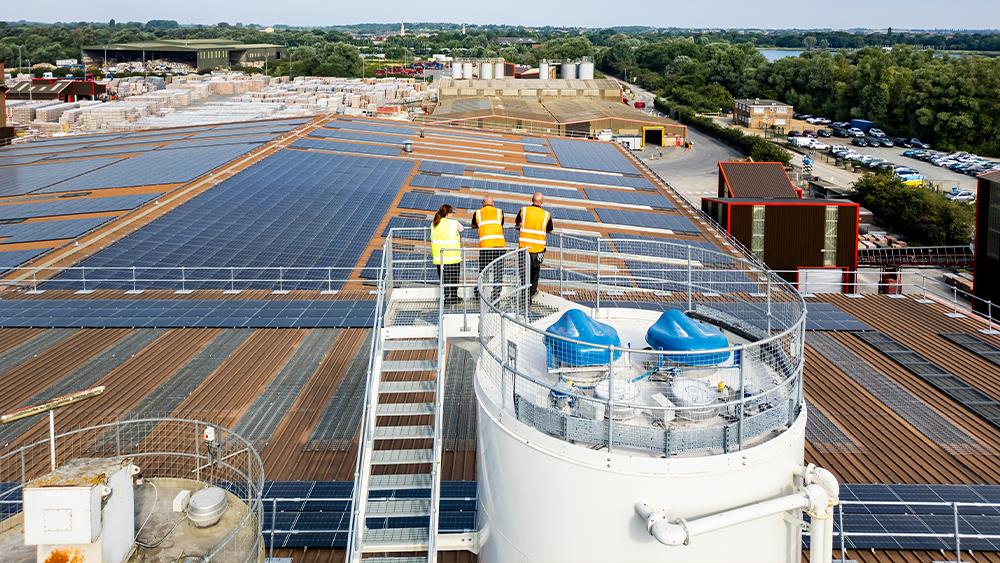

Marshalls has agreed near and long-term science-based emissions reduction targets with the Science Based Targets initiative (SBTi), making a commitment to reach net-zero greenhouse gas emissions across all scopes by 2050.
Marshalls’ near-term targets – to reduce absolute scope 1 and 2 greenhouse gas emissions by 50.5% by 2030 and reduce absolute scope 3 greenhouse gas emissions by 37.5% by 2033 – have been validated, as have its long-term targets, to reduce absolute scope 1 and 2 greenhouse gas emissions by at least 90% by 2040 and reduce absolute scope 3 greenhouse gas emissions by at least 90% by 2050. The targets use 2018 as the base year.
In 2019, Marshalls became one of the first businesses in its sector in the UK to commit to the SBTi programme, publishing an original set of targets which were validated in 2020.
The newly validated targets are based on a recalculation of the Marshalls group footprint following its acquisition of roofing specialist Marley in 2022. They also encompass the requirements for any net-zero target to include scope 3 emissions, as first detailed in the Net-Zero Standard of October 2021.
The SBTi said it commended Marshalls’ net-zero target, which it says is currently the most ambitious designation available through the SBTi process. To achieve its targets, Marshalls will work closely with its suppliers – particularly those who supply cement – to explore the technologies and innovations available to decarbonise its supply chain.
The SBTi develops standards, tools and guidance that allow companies to set greenhouse gas emissions reduction targets in line with what is needed to keep global heating below catastrophic levels.
Michael Edwards, Group Head of Sustainability for Marshalls, said: “This is a true landmark moment for Marshalls and one we’re very proud to be telling people about. It’s a clear demonstration of our absolute commitment to become a more sustainable business, which is something we, along with our stakeholders, take incredibly seriously.
“Additionally, achieving this robust, gold standard in validation will undoubtedly go on to influence and drive our product development and innovation, ensuring we meet customer sustainability needs and remain competitive in a market increasingly focused on environmental responsibility. Meanwhile, our Environmental Product Declarations allow us to demonstrate how our commitment is manifesting itself at a product level and give our customers the power to make informed, sustainable choices.
“We’re now actioning the meaningful and measurable steps required to meet our targets – a commitment that’s set in stone.”
Tim Clement, Director of Social Value and Sustainability for Morgan Sindall Construction, a customer of Marshalls, said: “Knowing Marshalls has made a net-zero commitment which has now been validated by the SBTi provides us with a greater level of confidence and reassurance that we’re working with a business that is absolutely committed to doing the right thing for future generations – something that’s incredibly important to us here at Morgan Sindall Construction.”
Marshalls worked with the Carbon Trust on the development and submission of its targets to the SBTi.
Samuel Lloyd, Sector Lead for Construction, Property and Infrastructure at the Carbon Trust, said: “Setting rigorous carbon reduction targets that are aligned to the latest science is a key step in any organisation’s path to net-zero. We’re pleased to have worked with Marshalls to develop these SBTi-validated targets, signalling the company’s strong commitment to accelerating its decarbonisation journey.”